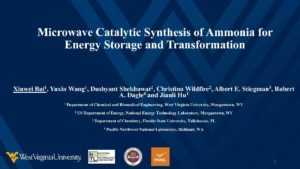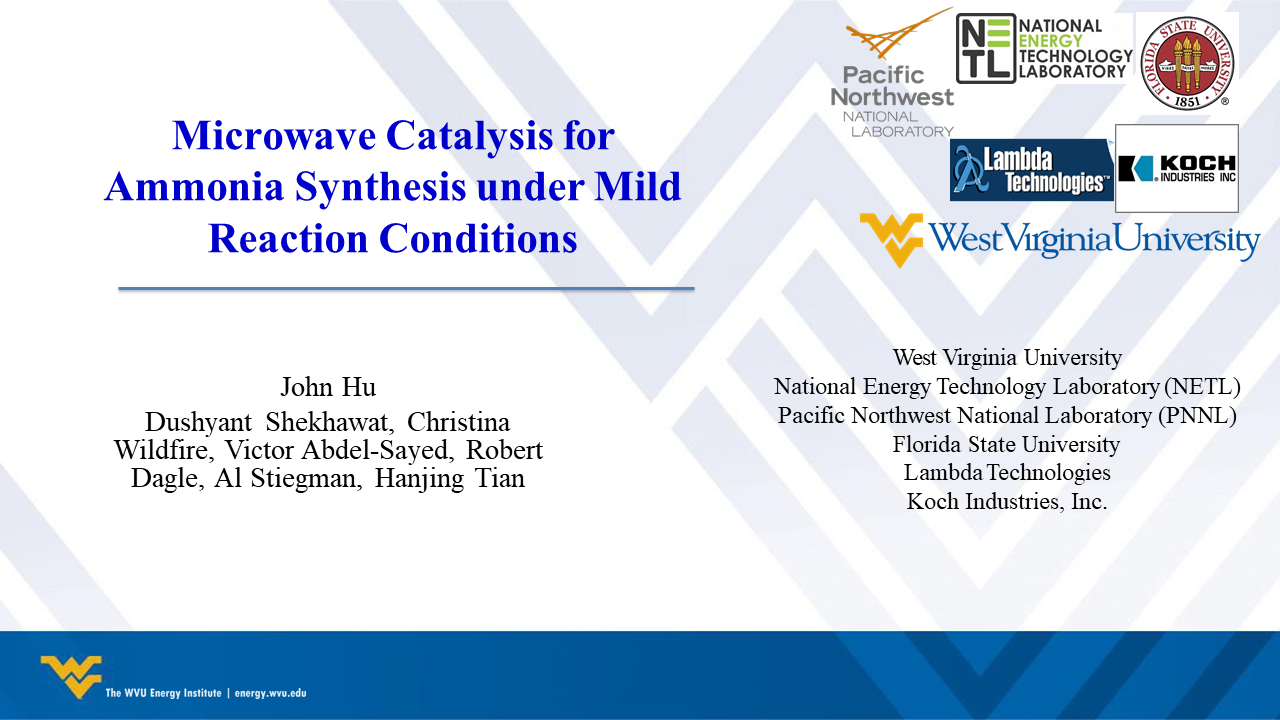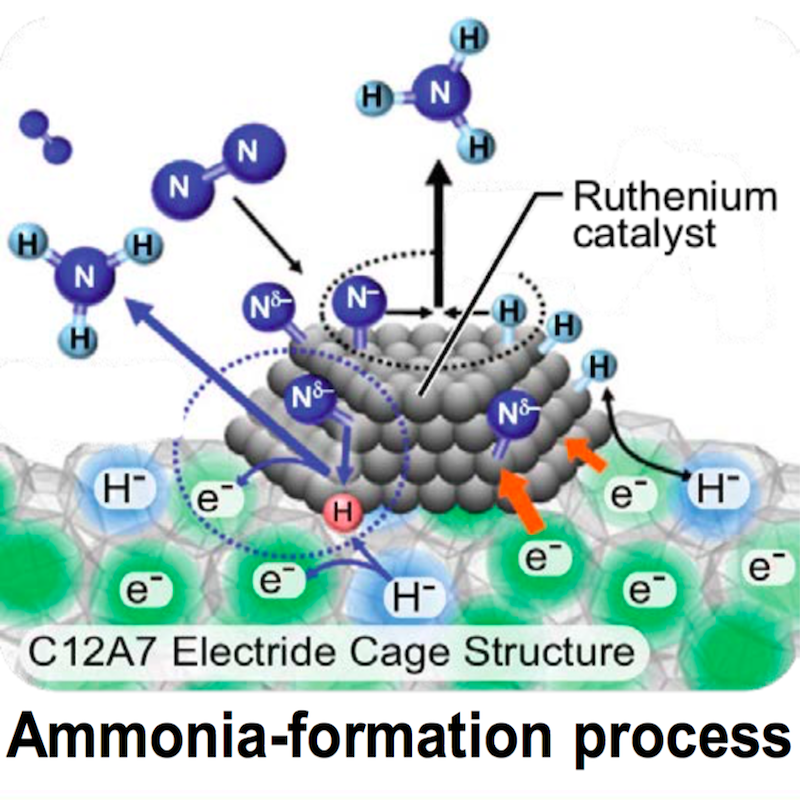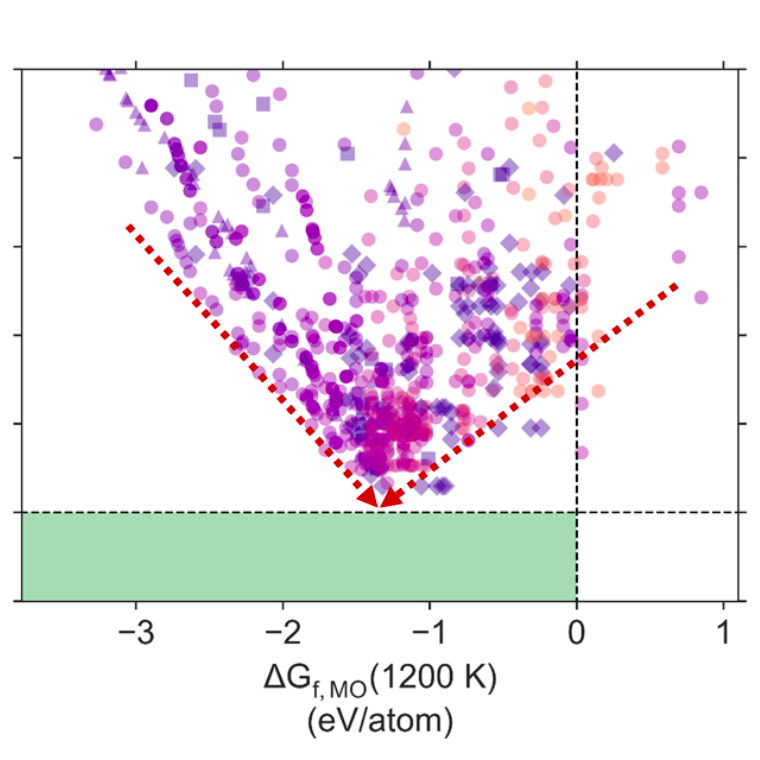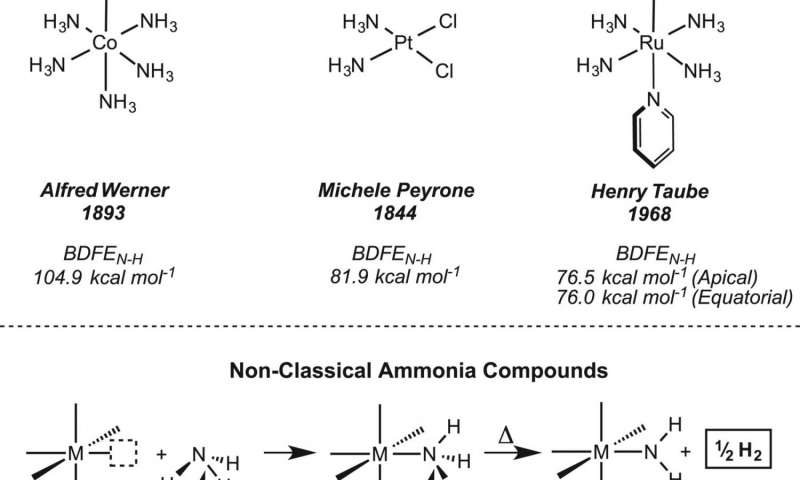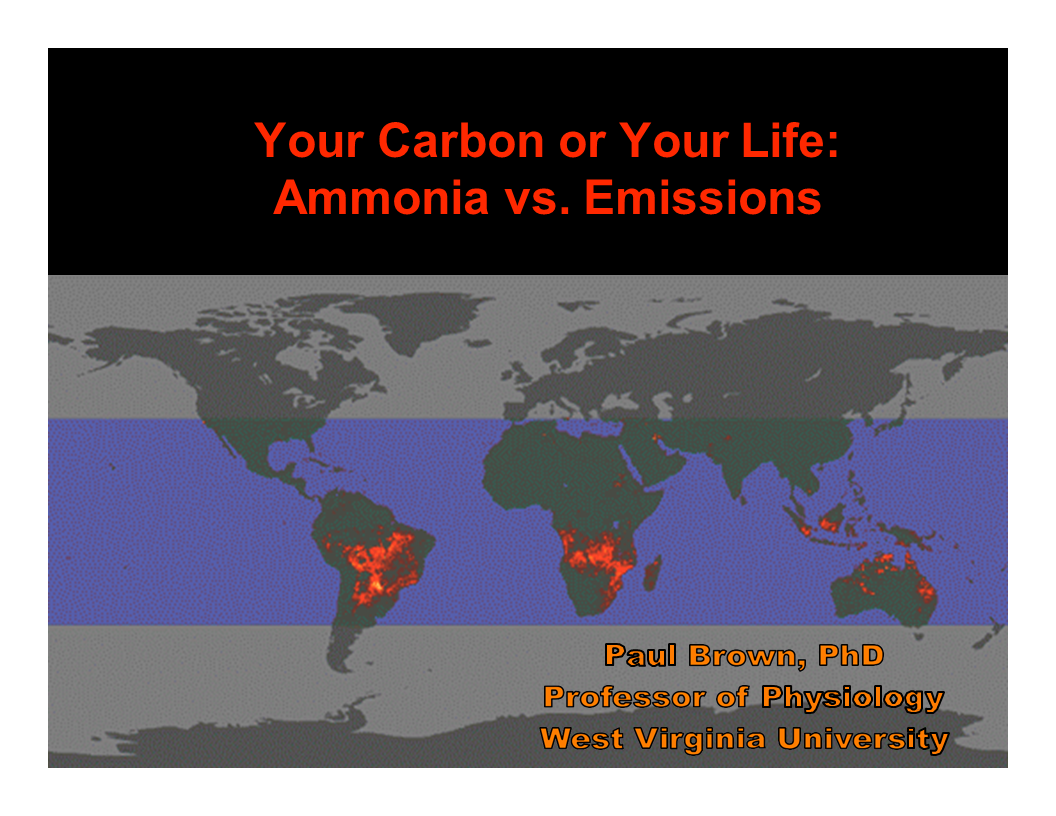Content Related to West Virginia University
Presentation
Microwave Catalytic Synthesis of Ammonia for Energy Storage and Transformation
This paper presents an innovative approach of producing energy-dense, carbon-neutral liquid ammonia as a means of energy carrier. The approach synergistically integrates microwave reaction chemistry with novel heterogeneous catalysis that decouples N2 activation from high temperature and high pressure reaction, altering reaction pathways and lowering activation energy. Results have shown that ammonia synthesis can be carried out at 280 ℃ and ambient pressure to achieve ~1 mmol NH3/g cat. /hour over supported Ru catalyst systems. Adding promoters of K, Ce and Ba has significantly improved the ammonia production rate over Ru-based catalysts that could be attributing to enhanced electromagnetic sensitivity…
Presentation
Microwave Catalysis for Ammonia Synthesis Under Mild Reaction Conditions
Jianli HuHanjing TianYan LuoXinwei BaiDushyant ShekhawatChristina WildfireVictor AbdelsayedMichael J. SpencerRobert A. DagleStephen DavidsonAlbert E. Stiegman
A scalable, cost-effective catalytic process of ammonia synthesis is developed by using microwave excitation under mild reaction conditions. In this research project funded by DOE ARPA-E, our interdisciplinary team of WVU, NETL, PNNL, FSU and two industrial partners have demonstrated that ammonia synthesis can be carried out at 200-300 °C and ambient pressure. This transformational process integrates system elements of electromagnetic sensitive catalysts and microwave reactor design. Taking advantages of state-of-the art non-equilibrium microwave plasma technology, catalytic ammonia synthesis undergoes a new reaction pathway where the barrier for the initial dissociation of the dinitrogen is decoupled from the bonding energy…
Article
Future Ammonia Technologies: Electrochemical (part 3)
Trevor Brown December 28, 2017
This series of articles on the future of ammonia synthesis began with a report on the NH3 Energy+ conference presentation by Grigorii Soloveichik, Program Director at the US Department of Energy's ARPA-E, who categorized the technologies as being either improvements on Haber-Bosch or electrochemical (with exceptions). ARPA-E invests in "transformational, high-risk, early-stage research," and recently began funding ammonia synthesis technologies, not to make renewable fertilizer but to produce "energy-dense zero-carbon liquid fuel." This article will introduce the six electrochemical technologies currently in development with funding from ARPA-E.
Article
Future Ammonia Technologies: Plasma, Membrane, Redox
Trevor Brown December 08, 2017
I wrote recently about two pathways for ammonia production technology development: improvements on Haber-Bosch, or electrochemical synthesis. Last week, I covered some of these Haber-Bosch improvements; next week, I'll write about electrochemical processes. This week, I want to write about some innovations that don't fit this two-way categorization: they don't use electrochemistry and they don't build upon the Haber-Bosch process, and that might be the only thing that links them.
Article
ARPA-E funding for renewable ammonia synthesis technologies
Trevor Brown December 23, 2016
Last week, ARPA-E announced funding for eight technologies that aim to make ammonia from renewable electricity, air, and water. The technological pathways being developed include adaptations of the Haber-Bosch process - seeking improvements in catalysts and absorbents - as well as novel electrochemical processes.
Article
Coordinated scission of N-H bonds
Trevor Brown November 17, 2016
A paper published in this week's edition of Science outlines a new approach to breaking the hydrogen-nitrogen bonds in ammonia, allowing the production of hydrogen at low temperatures. This research was also reported on phys.org under the headline: "Method found for pulling hydrogen from ammonia for use as clean fuel."
Presentation
Your Carbon or Your Life: Ammonia vs. Emissions
Your Carbon or Your Life: Ammonia vs. Emissions Paul Brown, West Virginia University
